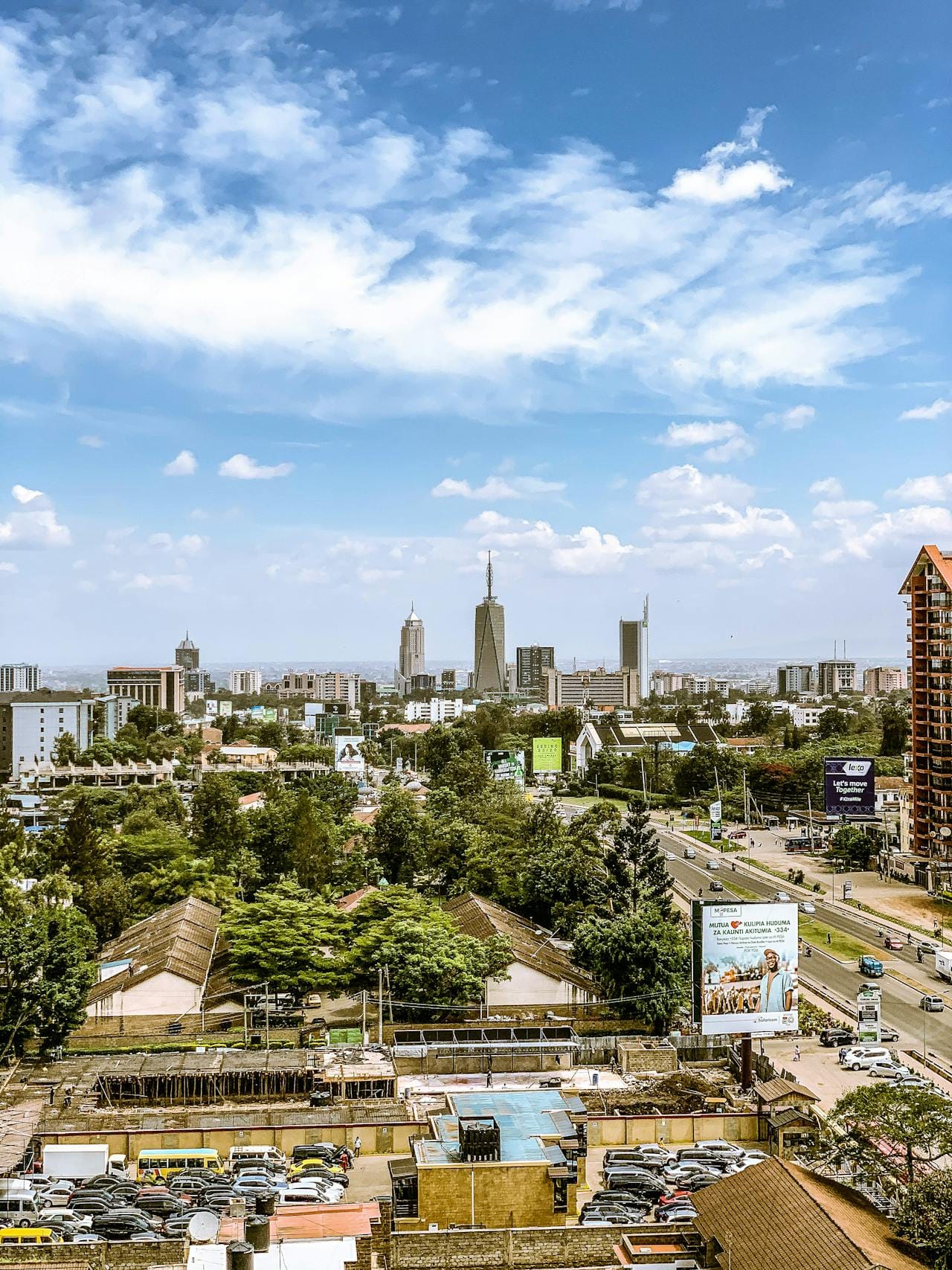A Practical Guide to Living Comfortably in Kenya
Moving to Kenya or planning an extended stay can be an exciting prospect. Those who are planning to stay in Kenya for a while often experience some common difficulties. Issues often arise concerning the best places to live and the related costs.
- Is it safe to rent or purchase property in major cities such as Nairobi and Mombasa?
- How can one secure dependable access to essential utilities like internet, water, and electricity?
- What measures should be taken to ensure home security, and what options are available for appliances and interior décor?
- What steps can new residents take to successfully integrate into the Kenyan culture and way of life?
This guide aims to give answers to these questions by giving advice and practical strategies. It is designed to ensure a smooth transition, enriching your stay In Kenya and enabling you to experience all this country has to offer.
1. Housing Options in Kenya
Many foreigners find it hard to find suitable places to live, dealing with issues such as:
- High rental charges, especially in Nairobi.
- A shortage of fully furnished housing.
- Deciding between staying in apartments, planned residential areas (estates), or detached (standalone) houses.
Solution: Choose Housing That Suits Your Needs
- Apartments
Budget-conscious?
Look into apartments in areas like South B, Kasarani, or along Ngong Road. Rents in these places normally range between KES 20,000 and KES 40,000 per month.
- Gated Communities & Estates
Need a family-friendly place?
Gated estates in areas like Kitengela, Ruiru, or Syokimau often have good security, privacy, as well as places for kids to play.
- Serviced Apartments
Staying for a short period?
- Serviced apartments (found in places like Westlands, Kilimani, or Diani) come ready to live in and take away many of the usual problems of settling in.
Want luxury?
- Affluent areas such as Karen, Gigiri, and Nyali have larger houses and villas.
2. Cost of Living in Nairobi

Unexpected costs are common for newcomers, especially when it comes to rent, transportation, utilities, and buying goods that are not produced locally.
Solution: Adopt Effective Budgeting Methods
- Shop for food at **local markets**, where prices are often lower than in big supermarkets.
- Use **M-Pesa** for transactions. This mobile money service is commonly accepted and provides a safe means of payment.
- To cut down on expenses, think about sharing **internet and satellite TV** with roommates.
- Consider settling in **smaller cities such as Nakuru or Kisumu**, where housing is more affordable while retaining key city services.
Living Costs in Kenya Vary by location, but here’s a breakdown Monthly Expenses for Nairobi (Most Expensive City):
- Rent: KES 15,000–250,000/month
- Food (for a family of four) KES 30,000–60,000/month
- Utilities: KES 5,000–15,000/month
- Transportation: KES 10,000–40,000/month
- Internet & TV: KES 3,000-10,000/month
- Domestic Help: KES 12,000-20,000/month
Coastal Towns like Mombasa and Diani are generally cheaper, while smaller towns like Nakuru and Eldoret offer excellent affordability.
3. Security and Safety in Kenyan Homes
Safety is a big issue, especially in cities like Nairobi and Mombasa. Homes in unsafe areas risk being broken into or robbed.
Solution: Make Security a Priority
- Choose to live in gated communities that have security guards and electric fences.
- Install CCTV cameras and smart locks to improve your home’s security.
- Keep important possessions in a strong safe.
- If living in a standalone house, think about hiring private security services.
4. Lifestyle and Culture
Newcomers may experience cultural differences related to food, language, and social practices.
Solution: Learn the Kenyan Culture
- Learn basic Swahili phrases; for example, Asante (thank you) and Karibu (welcome).
- Taste Kenyan dishes such as ugali, nyama choma, and samaki.
- Join social and expat groups in cities like Nairobi and Mombasa to connect with people.
- Go to cultural events and safaris to learn about Kenya’s history.
5. Utilities
Occasional water shortages and power outages can be annoyances.
Solution:
- Prepare for Utility Interruptions
- Use solar panels to reduce how much you rely on Kenya Power (KPLC).
- Set up water tanks or boreholes to store water.
- Keep a generator or inverter battery handy in case of power outages.
- Pick areas with dependable internet from companies like Safaricom Home Fibre, Zuku, and JTL Faiba.
6. Home Décor
Many apartments do not come with furniture, which means new residents must find ways to furnish and decorate affordably.
Solution: Combine Local Resources & Modern Design
- Find inexpensive furniture at markets such as Kamukunji and Eastleigh.
- For furniture, visit large stores or Ikea distributors in Nairobi.
- Add Kenyan touches with items like Maasai shukas, sisal baskets, and wood carvings.
- For a natural feel, add indoor plants.
7. Appliances
The cost of electricity can be high, and not every place includes appliances.
Solution: Pick Energy-Saving Models
- Fridges & freezers: Go for models that use less power.
- Cookers: Gas cookers can be cheaper to run than electric cookers.
- Washing machines: Good for families or those staying a long time.
- Solar water heaters: Can save on electricity costs.
- Backup lighting: Keep rechargeable LED lamps to use during power outages.
8. Sustainable Living
Many people wonder how to live in a way that protects the environment while still enjoying a comfortable lifestyle.
Solution: Try Eco-Friendly Options
- Set up rainwater collection systems.
- Use cleaning products that decompose naturally.
- Use solar panels.
- If building a home, choose materials that are better for the environment.
9. Advice for Foreign Residents
Moving to Kenya can be hard when dealing with visas, housing, health services, and getting used to a new society.
Solution: Useful Advice for Foreign Residents
- Good places to live: Nairobi (Kilimani, Westlands, Karen, Gigiri), Mombasa (Nyali, Diani).
- Transportation: Use ride-hailing apps like Uber, Bolt, and Little Cab.
- Healthcare: Top hospitals include Nairobi Hospital, Aga Khan, and MP Shah.
- Banking: Open a bank account in Kenya and use M-Pesa for daily transactions.
- Networking: Join groups for foreign residents and co-working spaces to meet people.
Frequently Asked Questions (FAQ)
- Is living in Kenya affordable?
- It can be, even though Nairobi is more expensive than other places. Expats should plan to spend at least KES 150,000–250,000 each month.
- What is the best city to live in?
- Nairobi is good for business, Mombasa for the coast, Kisumu for affordability, and Nakuru for having a balance of both.
- Can foreigners buy property?
- Yes, but there are limits on buying farmland. It is easier to buy apartments and townhouses in cities.
- How safe is it to live in Kenya?
- It is normally safe in secured residential communities. Taking extra safety steps is still a good idea.
- Which internet options are best?
- Safaricom Fibre has the best coverage, Zuku is affordable, and JTL Faiba is fast but only in certain areas.
- Do homes have reliable utilities?
- Yes, but power and water can sometimes be cut off briefly. Many homes have solar panels, water tanks, and generators as backup.
- What are some current trends in home design?
- Simple designs, Kenyan decorations, and smart technology.
Conclusion
Although living in Kenya does include challenges, each problem has a solution. By going in with the correct information and solutions, you can enjoy a comfortable, safe, and rewarding life in Kenya.
- Having problems finding housing?
- Find what matches your lifestyle and budget.
- Worried about the cost?
- Make a budget and buy locally.
- Worried about safety?
- Choose gated communities and invest in security systems.
- Experiencing utility problems?
- Install solar panels, store water, and use backup sources.
- Experiencing culture shock?
- Be open to learning, adapting, and valuing Kenyan hospitality.
Kenya is a beautiful and lively place, whether you plan to stay a long time or are just visiting.
Written by Dan Ikwee
Dan Ikwee is a Kenyan travel researcher, storyteller, and cultural explorer with a deep interest in local travel, heritage, and mental wellness through travel. Through DanTravelHub, he shares firsthand experiences, travel guides, and cultural insights drawn from real journeys across Kenya’s regions, festivals, and communities.
Discover more from Time to Travel
Subscribe to get the latest posts sent to your email.







